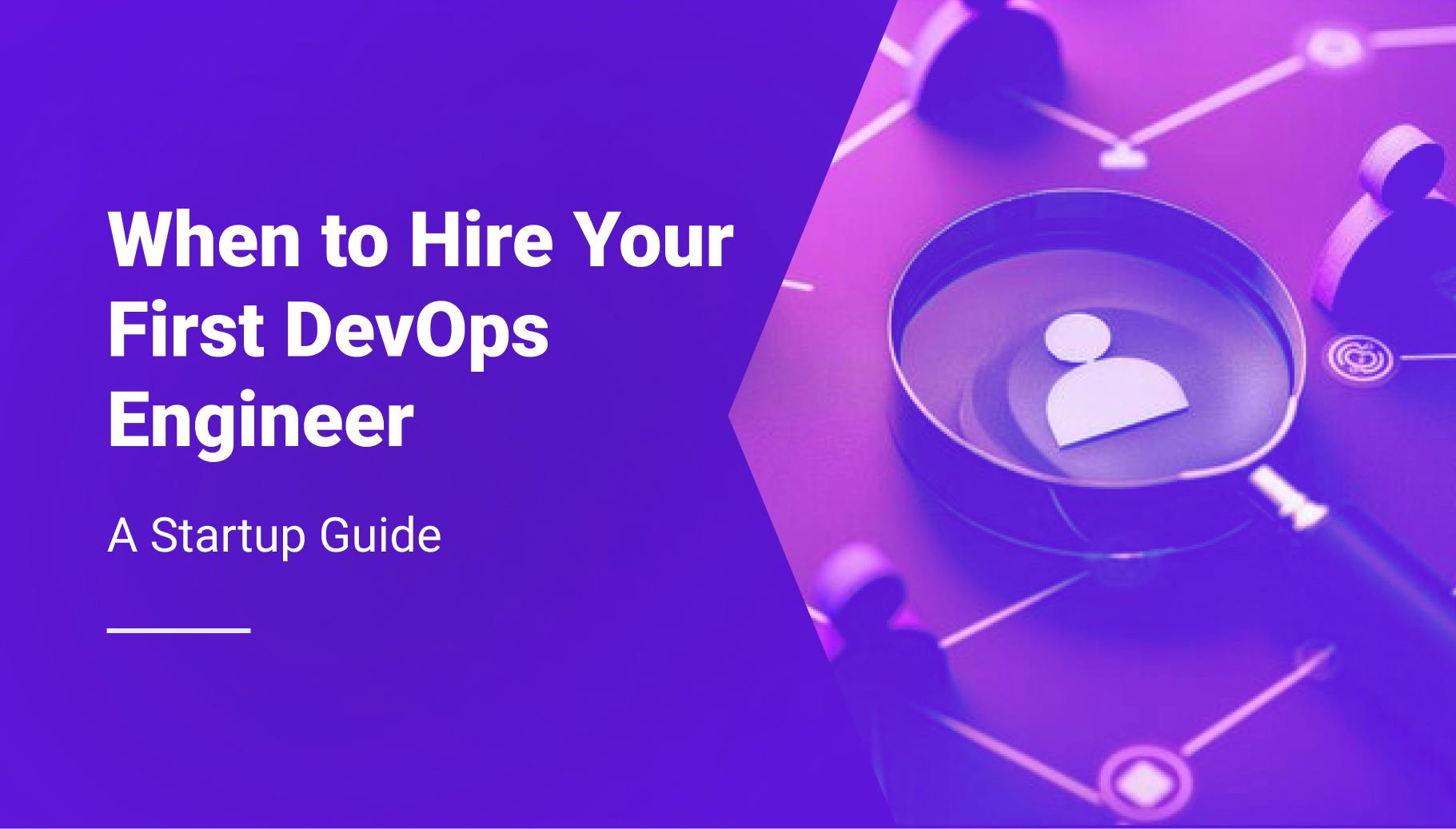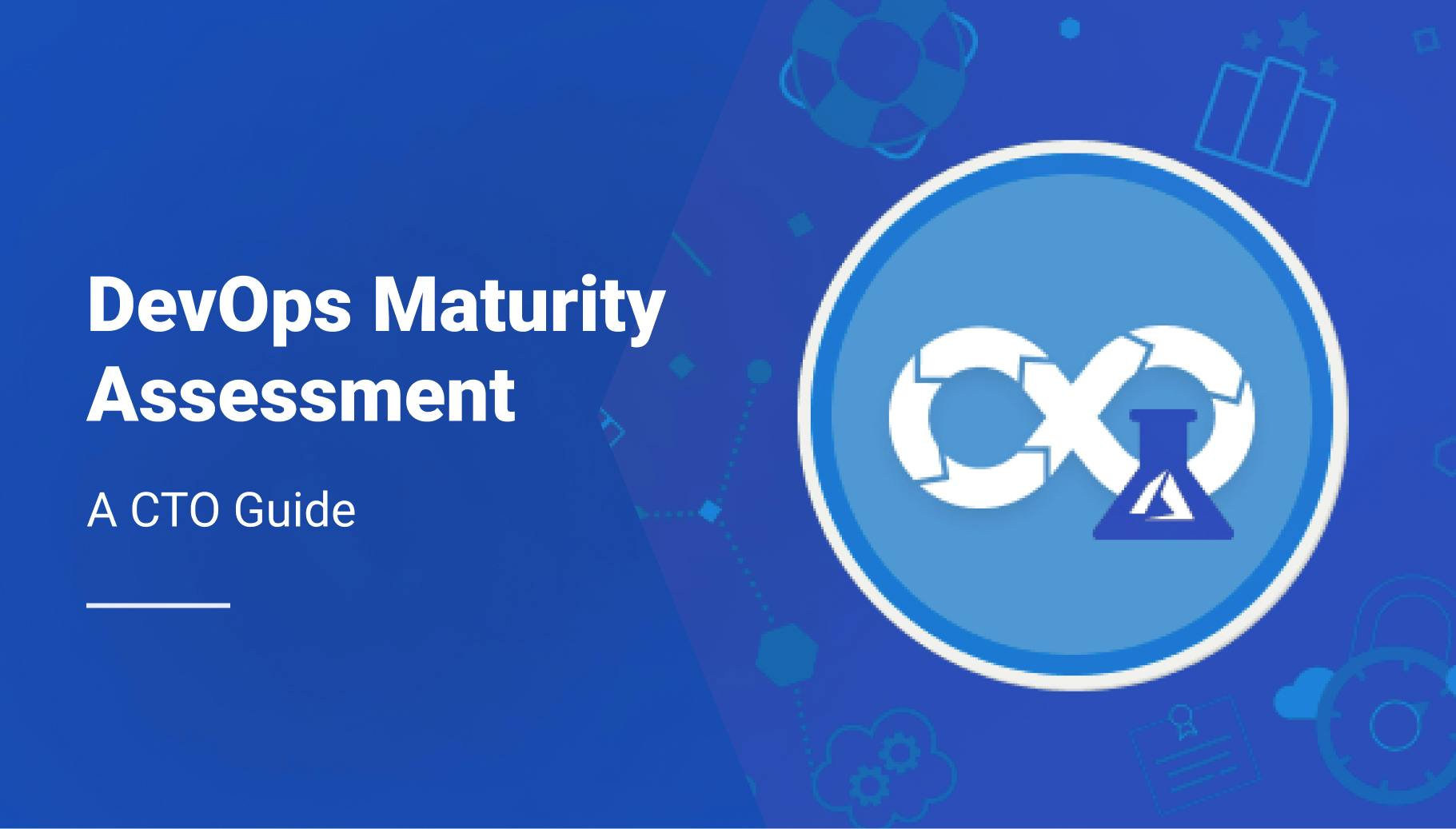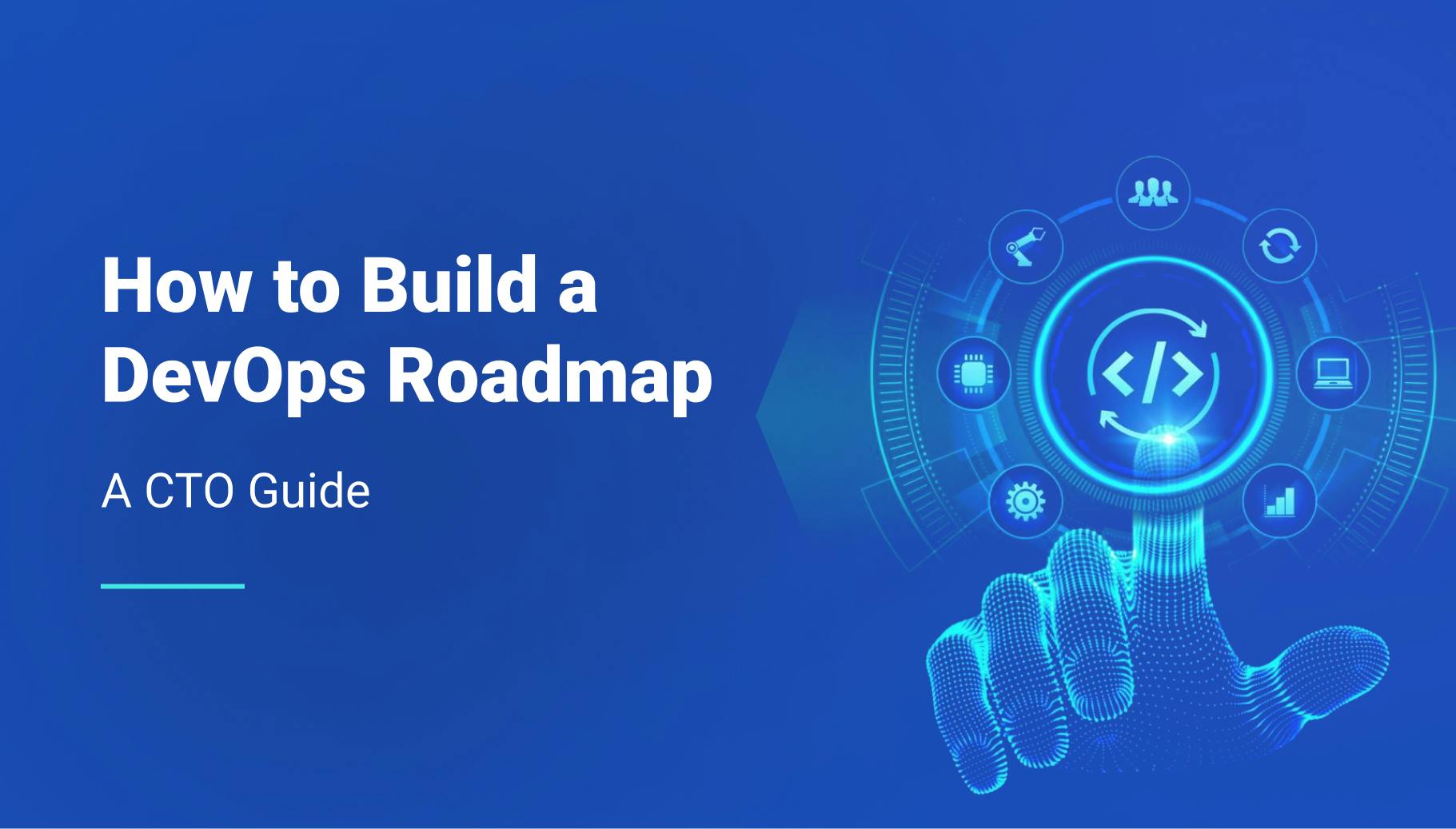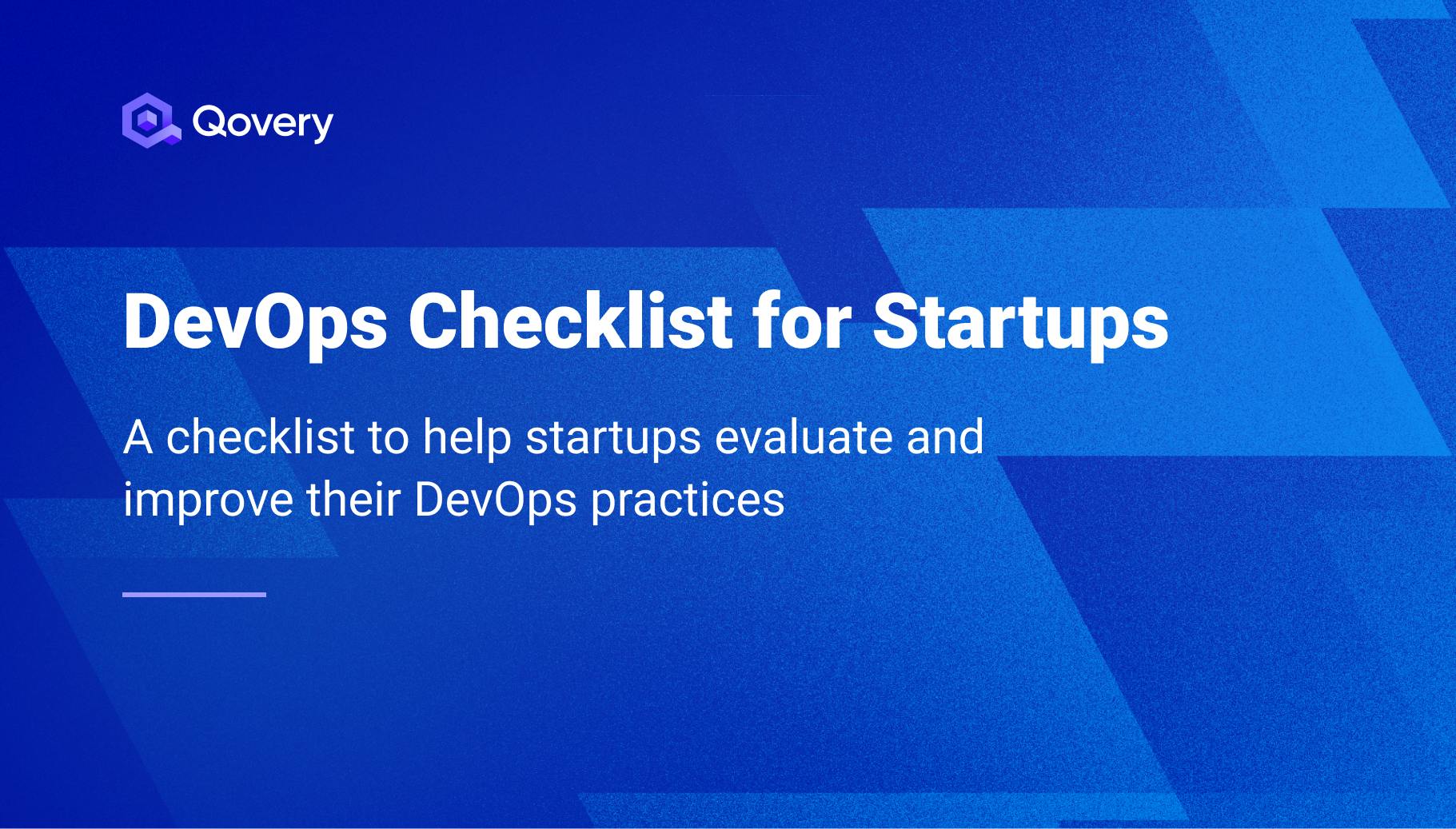When to Hire Your First DevOps Engineer: A Startup Guide
As your startup grows, infrastructure and deployment get more complex, raising a key question: “Do we need a DevOps engineer?” While automation tools can handle many tasks early on, there comes a point when manual intervention becomes necessary to scale efficiently and securely. This guide will help you assess when it’s time to hire your first DevOps engineer, the key responsibilities they bring, and alternatives that can delay the need for a full-time hire.

Morgan Perry
September 12, 2024 · 11 min read
#What does a DevOps engineer do?
To determine if your startup truly needs a DevOps engineer, it’s important to first understand what they actually do. A DevOps engineer is responsible for bridging the gap between development and operations, streamlining processes that involve code deployment, infrastructure management, and ongoing monitoring. Here are the key responsibilities:
- Infrastructure Management: DevOps engineers build and manage the underlying infrastructure that powers your applications. Whether you’re using AWS, Google Cloud, or any other provider, a DevOps engineer ensures that your servers, databases, and networking are properly set up, scalable, and resilient. They handle tasks like provisioning cloud resources, setting up load balancers, and managing storage.
- CI/CD Pipeline Setup: One of the most important jobs of a DevOps engineer is to create a Continuous Integration and Continuous Deployment (CI/CD) pipeline. This automates the process of testing and deploying code, making it faster and more reliable. Instead of manually pushing code to production, a well-built CI/CD pipeline allows developers to ship updates with confidence.
- Monitoring and Incident Management: A DevOps engineer constantly monitors your infrastructure and applications to catch issues before they affect users. They set up automated alerting systems to quickly identify and resolve incidents like crashes, slowdowns, or outages. This ensures high uptime and a seamless user experience.
- Security and Compliance: As your startup scales, maintaining security and meeting compliance standards (like SOC 2, HIPAA, or GDPR) become critical. A DevOps engineer ensures your systems are secure, access is controlled, and data is protected. They also make sure your infrastructure meets industry-specific compliance standards.
- Scalability: DevOps engineers focus on making sure your infrastructure can scale as demand grows. Whether it’s horizontal scaling (adding more servers) or vertical scaling (upgrading existing resources), they ensure your applications can handle spikes in traffic without breaking down.
#Signs your startup might need a DevOps engineer
As your startup grows, so do the demands on your infrastructure and development workflows. Here are some key signs that indicate it might be time to consider hiring your first DevOps engineer:
#1. Growing complexity in infrastructure
When your infrastructure becomes increasingly complex, managing everything manually can lead to mistakes, inefficiencies, and slowdowns. You may be using multiple cloud services, deploying microservices, or managing different environments (development, staging, and production). As this complexity grows, maintaining everything without dedicated expertise becomes a challenge.
#2. Frequent deployment failures or downtime
One of the most obvious signs is when deployment failures become common or downtime is more frequent than acceptable. This can happen due to poor configuration management, lack of proper monitoring, or insufficient automation. Recovery from incidents can also be painfully slow, causing disruption to customers.
#3. Development bottlenecks and developer burnout
Are your developers spending more time fixing infrastructure issues or maintaining deployment pipelines than building new features? When engineers spend too much time managing infrastructure, their productivity and creativity take a hit. The more time they spend on operational tasks, the less time they have to focus on development, which can lead to burnout.
#4. Security and Compliance requirements
As your startup grows, so do your security and compliance needs. Meeting regulations such as SOC 2 or HIPAA requires detailed logging, monitoring, and regular audits. Security also becomes a full-time concern as you handle more customer data and scale operations.
You can refer to our article “5 Best SOC 2 Compliance Solutions in 2024” for more insights on ensuring compliance as you grow.
#Key considerations before hiring your first DevOps engineer
Hiring a DevOps engineer is a big decision, especially for startups with tight budgets and rapidly evolving needs. Before taking the leap, it’s essential to weigh the pros and cons and consider alternatives that could help you scale efficiently without immediately investing in a full-time DevOps hire.
#1. Budget constraints and prioritizing investments
One of the most significant factors is cost. Hiring an experienced DevOps engineer isn’t cheap. Salaries can range from $100K to $200K per year, depending on the location and level of experience. Add to that the operational costs of onboarding and tooling, and it’s a considerable investment. Startups need to evaluate whether it makes financial sense to hire or whether DevOps automation platforms, like Qovery, can cover most operational needs without the salary overhead. Tools like Qovery allow you to delay the need for a dedicated DevOps engineer by automating infrastructure provisioning, deployment, and scaling, freeing up your developers to focus on building features.
For a more detailed look at how automation can save costs, check out our article on “DevOps Automation: What is it and How to Apply it?”.
#2. Growth projections and future needs
Consider where your startup is headed. Are you in a growth phase with rapidly scaling users and customers? Are you planning to launch a product that will demand more infrastructure or support? Hiring a DevOps engineer should align with your business roadmap. If your growth projection suggests significant scaling in the near future, hiring a DevOps engineer might be a proactive move. They can lay the foundation for scalable infrastructure, allowing your team to move faster and avoid potential bottlenecks. However, if growth is steady but not explosive, you might be better off investing in a DevOps automation platform or using DevOps consultants on a project basis.
#3. Should your first hire be a DevOps engineer?
A common dilemma startups face is whether their first hire in the tech team should be a DevOps engineer or another role like a backend developer or product engineer. If your infrastructure needs are not highly complex yet, it might make sense to hire another engineer who can contribute directly to product development and use automation platforms to manage DevOps tasks. However, if you’re at the point where infrastructure issues are slowing down development and causing bottlenecks, a DevOps engineer could provide the specialized skills needed to optimize processes and support your team.
#4. Cultural fit and building a DevOps culture
It’s essential to remember that DevOps isn’t just a role—it’s a culture. DevOps engineers work across teams, from development to operations to security, to ensure smooth collaboration and continuous delivery. When hiring, look for someone who can foster this collaborative culture and bring a mindset focused on automation, efficiency, and continuous improvement. A DevOps engineer should also be able to help your team adopt best practices in version control, continuous integration (CI), continuous delivery (CD), and infrastructure management. This helps establish a solid DevOps foundation early, ensuring your startup can scale smoothly as it grows.
Deciding when to hire your first DevOps engineer is a pivotal moment for any startup. Rather than focusing on team size alone, here are key scenarios that highlight when you might need to take that leap.
#When is the right time to hire your first DevOps engineer?
Timing is everything, especially when it comes to hiring a DevOps engineer. Hiring too early might strain your budget, while hiring too late could lead to bottlenecks that stifle growth. Here are key signs that it might be time for your startup to make that first DevOps hire.
#Scenario 1: Developers spend too much time on infrastructure
When your developers are spending more time on maintaining infrastructure than on actual product development, it’s a clear sign you need help. As teams grow, managing multiple environments (development, staging, production) and handling repetitive tasks like manual server provisioning becomes a massive time sink.
What to watch for:
- Developers constantly firefighting infrastructure issues.
- Long deployment cycles due to manual processes.
- Time spent fixing issues instead of building features.
What a DevOps engineer can do:
A dedicated DevOps engineer can streamline your deployment pipelines, automate repetitive tasks, and free your developers to focus on coding. This leads to faster development cycles and higher team productivity.
#Scenario 2: Manual deployments are failing too often
Frequent deployment failures are a huge productivity killer and often signal a lack of automation and consistency in your processes. As your infrastructure becomes more complex, without proper monitoring and automated recovery processes, downtime and failures can cripple your product’s reliability.
What to watch for:
- Frequent downtime or failed deployments.
- Long recovery times after incidents.
- Slow or inconsistent deployments due to manual steps.
What a DevOps engineer can do:
An experienced DevOps engineer will implement proper CI/CD pipelines, ensuring smoother deployments and automated rollbacks when failures occur. They’ll also focus on infrastructure health and monitoring to prevent issues before they impact your users.
For more on building effective pipelines, check out our guide: How to Build an Effective DevOps Roadmap.
#Scenario 3: Startup size and engineering team growth
As your startup grows, so does the complexity of managing infrastructure. A common signal that it’s time to hire a DevOps engineer is when your engineering team grows to around 5-10 developers. At this size, the need for streamlined automation and infrastructure management becomes more critical, as developers are typically juggling multiple responsibilities.
What to watch for:
- Your engineering team has grown, and frequent updates to production are becoming more difficult to manage.
- Developers are spending more time managing infrastructure and pipelines rather than coding.
- The number of services, environments (development, staging, production), and deployments is increasing rapidly.
What a DevOps engineer can do:
A DevOps engineer can help keep everything running smoothly by optimizing deployment pipelines, automating infrastructure management, and ensuring that your growing team can stay productive. They’ll also ensure that as the number of services and environments increases, your infrastructure scales efficiently.
#Scenario 4: You’re scaling fast, and the cloud costs are skyrocketing
As your startup scales, so do your infrastructure needs. Managing the cloud becomes more complex, and so does cloud cost optimization. Cloud bills can spiral out of control if not carefully managed, especially when scaling in a multi-cloud or microservices environment.
What to watch for:
- Cloud costs increasing disproportionately to team growth.
- Over-provisioning or under-utilizing cloud resources.
- Difficulty in scaling infrastructure to handle traffic spikes.
What a DevOps engineer can do:
A DevOps engineer will manage cloud infrastructure more efficiently, ensuring you’re using the right resources at the right scale. They’ll optimize cloud costs, introduce automation for scaling infrastructure, and apply governance around infrastructure spending.
#Scenario 5: Security and Compliance are becoming overwhelming
Startups that deal with sensitive data or plan to scale into regulated industries (like healthcare or finance) need to address security and compliance early. Automating compliance checks and managing security risks can quickly become a full-time job.
What to watch for:
- Struggling to meet security compliance (SOC 2, HIPAA).
- Managing security manually, without automation.
- Concern about meeting industry-specific regulations as you scale.
What a DevOps engineer can do:
A DevOps engineer can automate security checks and integrate compliance protocols into your infrastructure from day one. With the rise of DevSecOps, security is no longer an afterthought—it’s baked into every stage of the development process. For more insight, read our post on SOC 2 Compliance.
#Scenario 6: Team burnout is real
When your team starts feeling overworked and overwhelmed, especially with operational tasks, it’s often a sign that you need to distribute the workload more evenly. Too much manual intervention in infrastructure management can lead to burnout, reducing your team’s efficiency.
What to watch for:
- Your team is consistently working overtime to handle infrastructure.
- Stress levels rising due to operational challenges.
- Developer burnout affecting productivity and morale.
What a DevOps engineer can do:
By bringing in a DevOps engineer, you can relieve operational pressure on your development team. They’ll take over managing and automating critical infrastructure tasks, allowing your team to focus on what they do best—delivering high-quality features and products.
#Best alternatives to hiring a full-time DevOps engineer
#1. Leveraging DevOps Automation Platforms (like Qovery)
For startups that want to delay hiring a full-time DevOps engineer or reduce the need altogether, leveraging a DevOps automation platform like Qovery can be a powerful solution. Qovery automates infrastructure management, CI/CD pipelines, and compliance, allowing developers to focus on building and scaling products without needing to manage complex infrastructure manually.
Benefits of using Qovery:
- Automates routine tasks: Qovery handles most day-to-day infrastructure needs, including scaling, environment provisioning, and deployments.
- CI/CD integration: With integrated CI/CD pipelines, Qovery simplifies deployments and reduces human error.
- Built-in compliance: For startups handling sensitive data, Qovery includes compliance features (such as SOC 2) right out of the box.
- Dedicated support and expertise: Beyond the platform, Qovery offers dedicated support and access to a team of DevOps experts who can help guide your infrastructure strategy and ensure you’re following best practices.
- Scales with your business: As your company grows, Qovery can seamlessly adapt to increased complexity without the need for additional DevOps personnel.
Relevant article: Top 18 DevOps Tools for Startups
#2. Using DevOps Consultants or Agencies
Another viable option for startups is to outsource DevOps tasks to specialized consultants or agencies. This is especially helpful when you have short-term or specific needs that don’t justify a full-time hire.
Benefits of DevOps consultants:
• Expertise: Consultants bring specialized expertise that can address immediate challenges without a long-term commitment.
• Cost-efficient: Hiring a consultant or agency for specific tasks can be more cost-effective than bringing on a full-time engineer.
• Flexibility: You can use consultants for one-off projects or ongoing support as needed, giving you the flexibility to scale your DevOps efforts as your company grows.
While both options provide alternarive solutions to manage DevOps needs without hiring a full-time engineer, leveraging Qovery stands out as the most cost-effective and sustainable choice. Whether you’re just starting out or rapidly scaling, Qovery’s comprehensive automation, integrated compliance, and expert support make it the ideal solution for managing your DevOps operations both now and as you grow.
#Conclusion
Deciding when to hire your first DevOps engineer is a crucial milestone for any growing startup. As your infrastructure becomes more complex, and your development team grows, the need for a dedicated DevOps resource will eventually become clear. However, with the right tools and strategies in place, such as leveraging automation platforms like Qovery, you can significantly delay or even eliminate the need for a full-time DevOps hire while still maintaining efficiency and operational excellence.
Ready to streamline your DevOps operations and free up your developers’ time? Try Qovery today and experience how our platform can accelerate your startup’s growth. Sign up for a free trial!!
Your Favorite DevOps Automation Platform
Qovery is a DevOps Automation Platform Helping 200+ Organizations To Ship Faster and Eliminate DevOps Hiring Needs
Try it out now!

Your Favorite DevOps Automation Platform
Qovery is a DevOps Automation Platform Helping 200+ Organizations To Ship Faster and Eliminate DevOps Hiring Needs
Try it out now!



